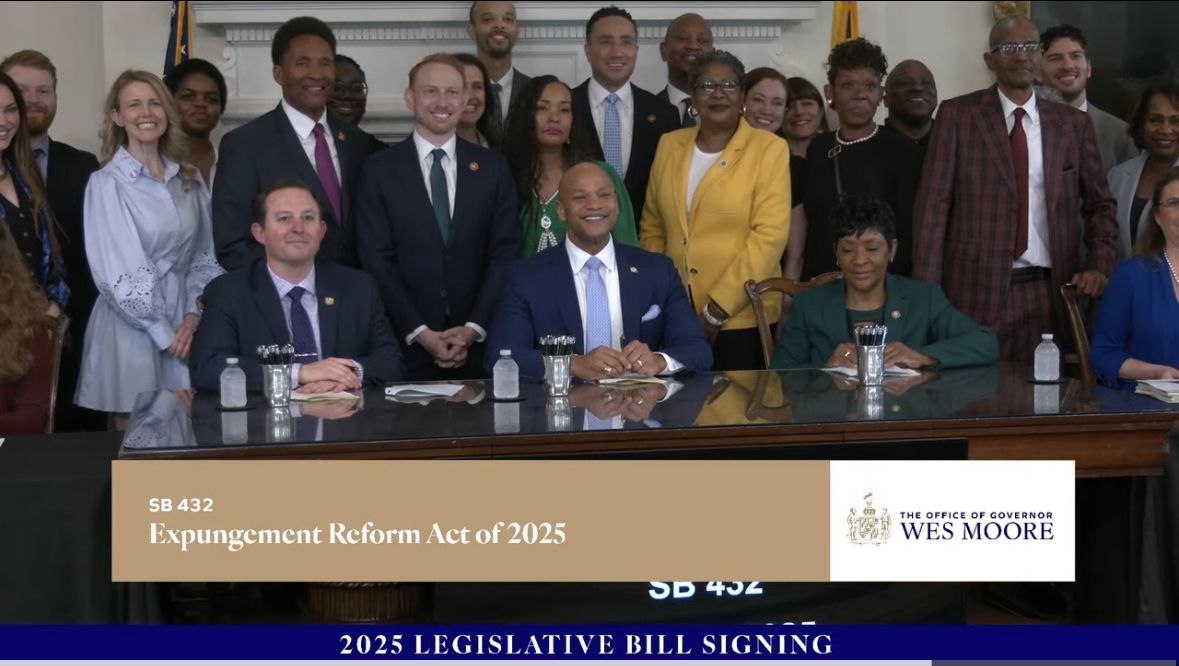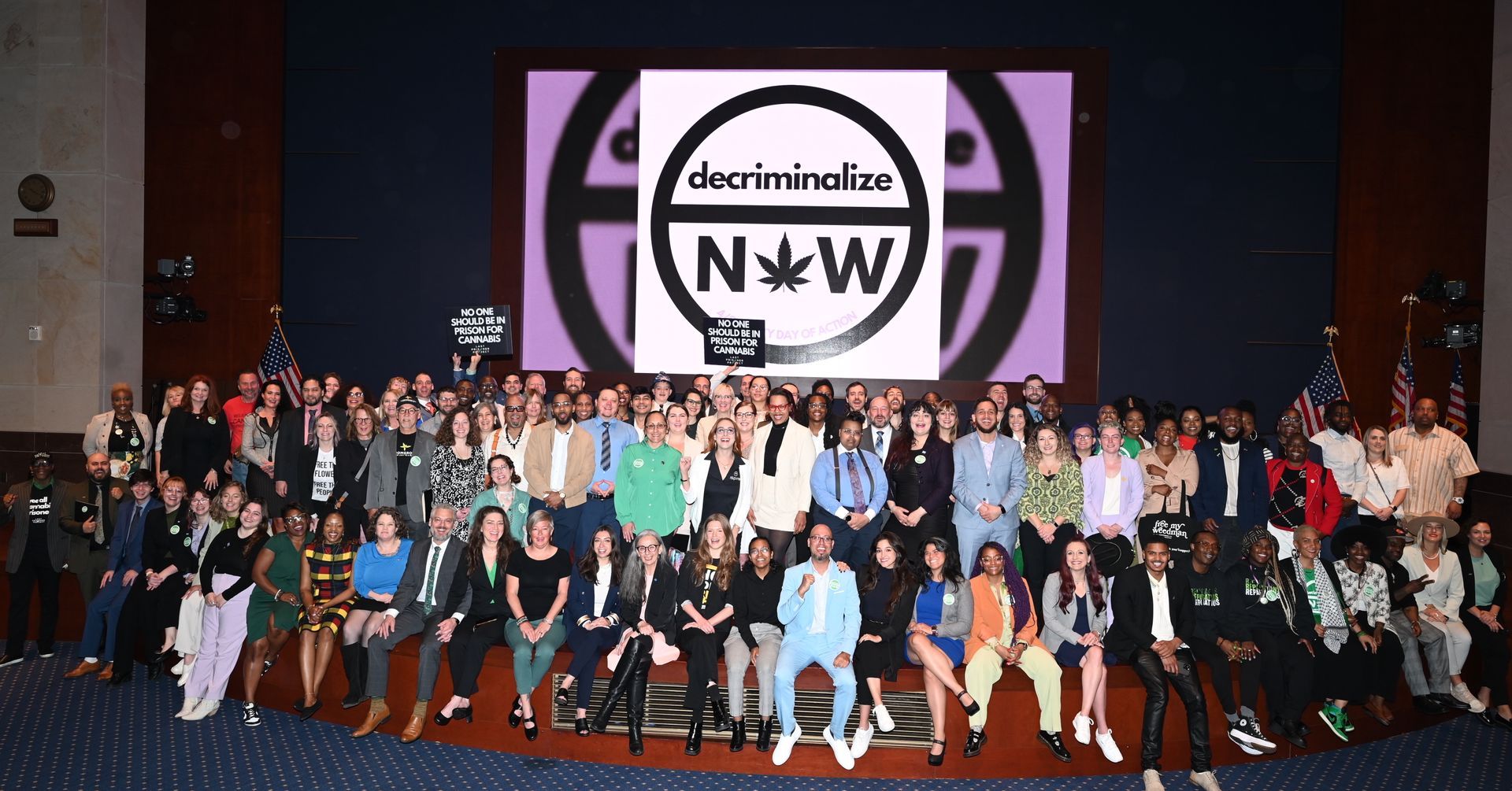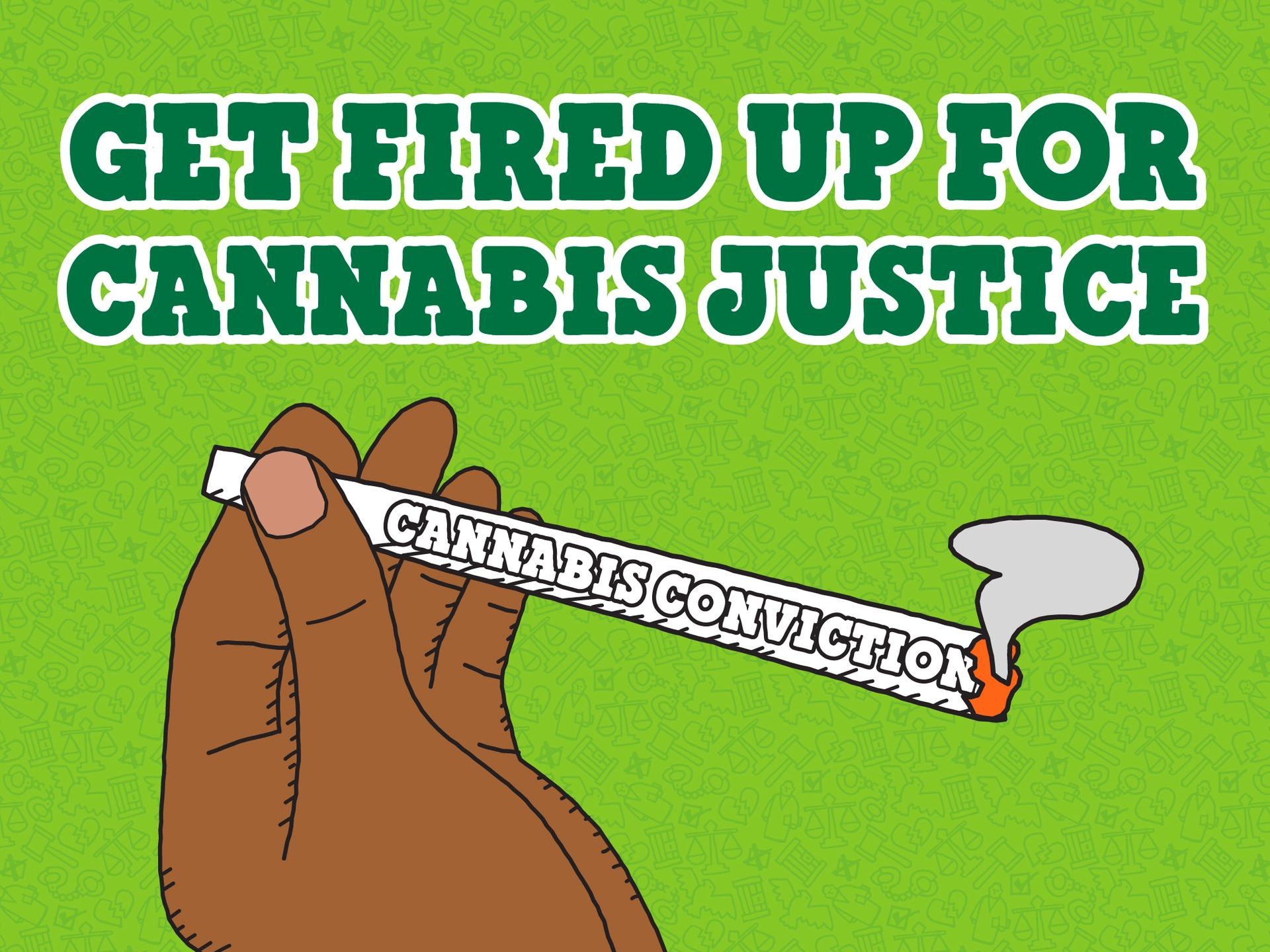Vicki Thomas’ Gut-Wrenching Journey Through Her Husband's 8-Year Cannabis Incarceration
Last Prisoner Project’s Director of Advocacy Stephanie Shepard recently had the opportunity to sit down with Vicki Thomas, a woman whose family was devastatingly impacted by the war on drugs. Vicki's husband, Harold, was sentenced to 8 years in prison for a cannabis-related offense, leaving Vicki and their family to navigate the emotional and financial turmoil that followed. In this powerful interview, Vicki shares her story, the challenges she faced, her unwavering fight to bring Harold home, and her plea to President Biden to do for other families what could have been done for hers.
Life Before Incarceration
Vicki describes her family's life before Harold's arrest as a "normal" one - filled with family gatherings, vacations, and community involvement. Vicki says “We were just an average family, just making it, having family get-togethers, traveling, taking vacations, enjoying our five grandkids, just a normal life. There was nothing that I saw that was abnormal. Our kids were grown, and we got to spend quality time with our grandkids, went to church every week, and started different businesses”. Vicki was in school and was preparing for retirement and a move back to her hometown in Ohio when their world was turned upside down.
The Arrest and Aftermath
Vicki recounts the day when her husband was picked up and their home was raided. She was left in the dark, unsure of what was happening and how to navigate the complex legal system. "It was a very challenging time because I didn't know what was going on," Vicki says. “Not knowing what was going on with him in prison, how he was being treated, trying to talk to him over the phone, and sometimes he couldn't call, because things didn't work out electronically, or different things were going on in the prison and that brought on a lot of anxiety when I couldn't get in contact with him. I was a mess. I found myself crying a lot and very depressed." Despite their efforts to fight the charges, Harold was ultimately sentenced to 8 years in prison, a mandatory sentence that left Vicki and her family devastated.
Adjusting to Life Alone
The aftermath of Harold's incarceration was a profound struggle for Vicki. She describes feeling anxious, depressed, and alone, unable to confide in friends or family who had not experienced a similar situation. Vicki had to return to work to support the household, all while worrying about her husband's well-being in prison while enduring the financial strain of sending him money. "It was a financial hardship, and since I’d retired, I had to go back and find a job to try to keep the house. I didn't know who to turn to or talk to because I didn't know anyone; friend or family, that's ever gone through this. I couldn't talk to anyone at work about it. It was like my entire family and I were in prison too.”
When asked how her children dealt with Harold’s incarceration, Vicki said “My daughter had a hard time with it. She was trying to go to school, and I was trying to help her out, by babysitting and doing different things to allow her to have a somewhat normal life, because she was a single parent, there was so much going on, and that's very difficult position when you're a single parent. People don't understand the day-to-day struggles that go on. Thinking about feeding yourselves or do you pay your gas and electric bills? Sometimes you have to pick and choose different things while the rest of the world is going on, we were just trying to support one another. She finally got into cosmetology school and completed it this year, but the struggle was real. There were days that she couldn't make it to school because of transportation or different things that came up. She wanted to talk to her dad and have that support. My son stepped up and took the place of being the rock for the family. He tried his best to make sure that we were okay. It was hard because he's on the West Coast, but he did the best he could”.
The Fight for Harold's Release
Vicki and her family fought tirelessly to secure Harold's release, researching the law, filing paperwork, and even representing him in court. Vicki says “We were pretty much grassroots, doing our research, getting the paperwork together, going to the courts, submitting the paperwork, it was a daily grind. It was like a full-time job to see how we could get him out of jail”. She recounts the dramatic courtroom scene, where the prosecution brought in a large amount of marijuana as evidence, leaving Vicki and her daughter in tears. Harold was trying to advocate for himself, but it’s difficult to do when you have no support and he simply didn't have the support he needed. Despite their efforts, the judge ultimately sentenced Harold to a mandatory 8-year term, a devastating blow to the family. Vicki says “It was too much to even process at that time, to hear the sentence and to see Harold taken away, it was like someone had died. I felt like we were in mourning for eight years”. I couldn't talk to anyone at work about it. It was like my entire family and I were in prison too”.
Discovering the Last Prisoner Project
During her struggle, Vicki discovered the Last Prisoner Project, an organization dedicated to supporting individuals and families impacted by the war on drugs. Vicki said “I was seeking out organizations that supported people that were incarcerated for cannabis and Last Prisoner Project came up, and I was so overjoyed because I didn't think anyone was out there doing anything. The more I reached out, the more frustrated I got with the different organizations. They're helping certain populations, but they never returned to help in our case. So I just kept seeking and searching, and I finally found Last Prisoner Project”. She describes the initial interaction as a glimmer of hope, with a then law student researcher reaching out to express interest in Harold's case, Mariah Daly. "She made me feel like there's people out there that cared," Vicki says.
The relationship grew, “I thought it was going to be like the other organizations, they would take my information, and then I wouldn't hear back from them. I was in California one year, and I got a call from Mariah, and she was saying she was researching different cases, and Harold's came up and she said, “I want to see if we can help Harold”. She was awesome. I felt like I was just out there in space somewhere and that people probably thought I was crazy for asking people to help me, and here she was calling me, saying, “We want to try to help you”. She didn't make any promises. She just wanted to see if his case would fit. She said, “I have to take it back to the powers that be, but I just want to research and see what we can do. Let me get back to you”. I didn't hear for a while, so I just kind of forgot about it, because of my experiences with other organizations, but then I got contacted again by them, and I was like, “Oh my gosh, they're still around”. I was excited because they didn't forget about us. I was telling Harold, and he said, “Well, you know, those organizations are not going to really help us”, because being in there, he already had this thought that no one cares, right? But I said, “No, I really think this organization is going to help I really do”. Because of Harold's mandatory sentence, the courts just wouldn't budge, but like I said, just having the support that someone's trying. He said he got help with some commissary funding but he didn't know who it was from, I said, “Well, it probably was from Last Prisoner Project”.... and turned out it was! I said, “Oh my God, there they go again. We were so elated that somebody cared and that we were not walking this walk alone. The ongoing support from the Last Prisoner Project, including financial assistance and emotional encouragement, was a lifeline for Vicki and her family.
The Lasting Impact and Calls for Change
Vicki emphasizes the devastating and long-lasting impact of cannabis incarceration on families like hers. "It's devastating. The impact is devastating. You can never get that time back," she says. Vicki calls for the release of all cannabis prisoners, arguing that the war on drugs has failed and that these individuals deserve to be reunited with their loved ones. She also urges President Biden to take action in the final days of his term, stating, "Let them out. It doesn't make sense. Half of America has legalized cannabis in some form now. These are people who deserve to be with their families, live their lives, and be economically independent just as much as anyone else does. They can contribute to society in so many ways and deserve a second chance to do that with how far the cannabis industry has come. I know President Biden understands the importance of family and we can never get that time back, so we have to find a way to forget it ever happened so that we can move forward because it takes a toll on everyone”.
Vicki's story is a powerful testament to the human cost of the war on drugs and the urgent need for reform. Her resilience and determination in the face of overwhelming adversity are inspiring, and her call for change resonates with the millions of families impacted by the unjust criminalization of cannabis. As Last Prisoner Project continues its mission to right these wrongs, Vicki's story serves as a reminder of the profound impact of standing up for justice with compassion.
Check out Harold's perspective below:






